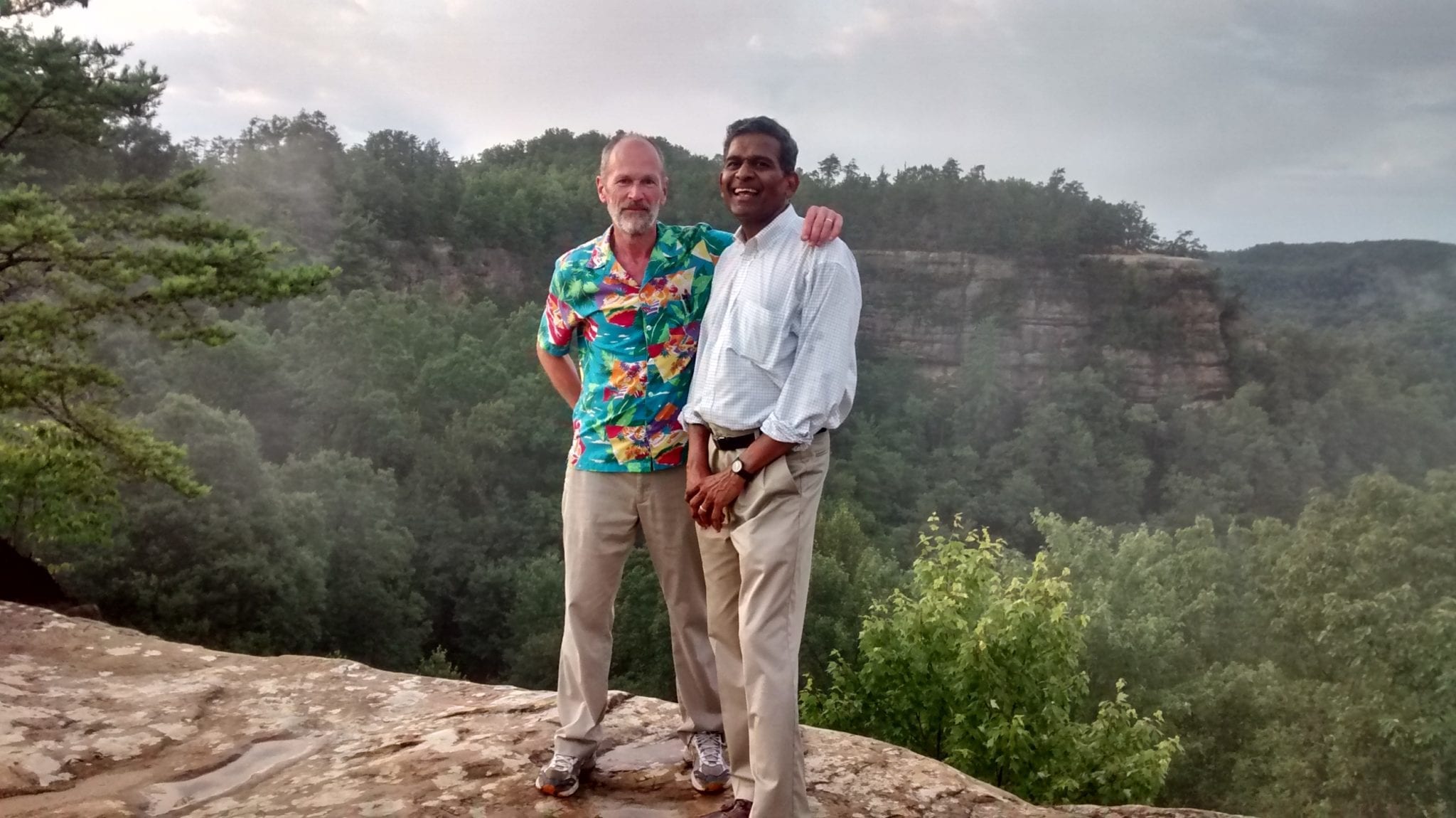When he was 10 years old, Thomas Benzoni was happily hurtling downhill on his bicycle when the front wheel fell off. So did Benzoni, who sustained injuries and gained an interest in medicine thanks to the care he received.
“The whole process fascinated me,” says the longtime physician, assistant professor of family medicine and adjunct global health faculty member at DMU. Members of his family also influenced his interest in global health service, which he has participated in underserved areas of the United States and other countries. He led a group of DMU students on a health service trip last March to Biloxi, MS, and in March 2016 will lead another group in Breathitt County, KY.
“You reach a certain point in life in which you’re at the smorgasbord, you’ve eaten your fill and you’ve put some in your pockets. After that, what do you do?” he reflects. “Health service is paying it forward. Maybe one or two students will catch that bug.”
Benzoni, D.O., AOBEM, FACEP, ABFM, has devoted much of his career to emergency medicine. He is a fellow of the American College of Emergency Physicians, a founding member of the Iowa Disaster Medical Assistance Team, holder of multiple certifications with the Iowa Task Force 1 Urban Search and Rescue, and an active physician in the American Heart Association’s Mission: Lifeline, among many other entities. He is boarded by the American Osteopathic Board of Emergency Medicine and the American Board of Family Medicine.
Early in their medical practice, Benzoni and his wife/fellow DMU graduate, Noreen O’Shea, assistant professor of family medicine at the University, established a hospital in underserved Appalachia, where “rising above your raisin’” — aspiring to a better life than one’s elders — was frowned upon. The couple became active and highly visible members of the local communities.
“We got to be known as regular people. When the students there saw that, they learned it’s okay to get an education and come back and serve your community,” he says.
In working with students, Benzoni strives to teach them to “be where the patient is” — in other words, to be aware of and responsive to each patient’s circumstances and culture. He emphasizes the two elements students need to be successful: first, great mentors — he names several he’s had in his career — and second, “the ability to delay one’s gratification.”
“That teaches you to put your needs second, after the patient’s,” he adds.


